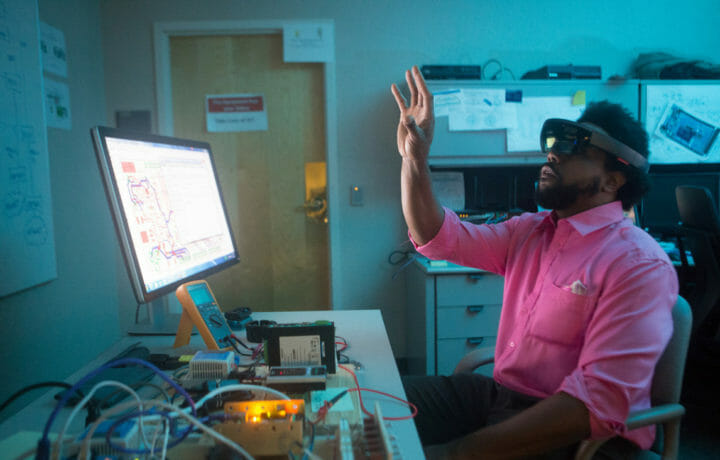Preparing for a job interview can feel overwhelming, especially when you’re unsure what the ‘they’ will even ask you. How can you prepare to answer questions when you don’t even know what they are going to ask you? How do you structure your answers to unknown questions heading right for you?
While traditional interview prep methods like mock sessions with friends or reading online guides are still great ways to prepare, there is another way. AI and Chatbots are offering a new, more interactive way to get ready. With AI tools, job seekers can now better simulate interviews, get instant feedback, and build confidence, all on their own schedule. Don’t wait for a friend, family member, or coworker to be free, lose interest, or get distracted.
Why Practicing Interviews Is So Important
Walking into an interview unprepared can cost you the opportunity, even if you’re qualified. Practicing ahead of time helps reduce anxiety, sharpens your communication skills, and boosts your confidence. Walking into that room with confidence can be the difference between walking out defeated or walking out with your head held high. AI will allow you to identify weak spots, like rambling, using filler words, or skipping over key achievements, before you’re in front of a real hiring manager.
Practice allows you to refine your story. You learn how to explain your background clearly, connect your experience to the role, and present yourself as the best candidate. A chatbot can tell you if you are using too much jargon or military lingo, and it can identify where you need to stop talking or talk more. Most importantly, it helps you become more comfortable under pressure.
How AI Tools Can Help
Many AI tools already simulate real job interviews to help you prepare effectively. You answer questions either by typing or speaking, and the AI analyzes your responses, tone, word choice, and even pacing. These tools help you see how you’re coming across, which is hard to assess on your own.
Interview Warmup by Google is a great starting point. It gives job seekers questions tailored to their industry and offers insights on themes you cover, words you repeat, and phrases you might want to improve. Another helpful tool, Yoodli, evaluates your speech patterns, identifies filler words, and helps you polish your delivery. True, you could just record yourself and analyze it after. But why do double the work when a tool like this exists and can make the preparation time happen quicker with more practice and less reviewing of recordings?
For a more immersive experience, platforms like Big Interview simulate full interview scenarios, complete with coaching on how to answer behavioral or technical questions. VMock is another AI-powered service that’s especially popular with universities. It helps refine both your resume and interview performance, offering feedback on your content and delivery.
Even ChatGPT can be used creatively. By prompting it to act as an interviewer for a specific role, you can hold a personalized mock interview and receive feedback instantly.
What Kinds of Questions Should You Practice?
To make the most of these tools, it’s helpful to focus on the right kinds of questions. Start with behavioral questions like, “Tell me about a time you had to resolve a conflict at work.” These help you demonstrate how you handle real-world situations. Role-specific questions, such as “How would you improve our product’s marketing strategy?” let you show off your technical knowledge or creativity.
It’s also important to practice questions about your strengths, weaknesses, and past challenges. Questions like “What’s your greatest strength?” or “Describe a professional mistake you’ve learned from” give you the chance to show self-awareness and a growth mindset. Yes, these are questions that you have heard before, but each interview, just like each Resume, should be different and catered to the job you are interviewing for.
Don’t skip over common openers like “Tell me about yourself” or closers such as “Do you have any questions for us?” These moments often shape the first and last impression, and AI tools can help you make them count. Do not skip over the opportunity to ask questions. This is an opportunity to showcase what you have picked up during the interview. An AI chatbot can help you formulate questions should you come up short in the moment.
Tips to Make AI Practice More Effective
When using AI tools, try to practice aloud rather than typing. Speaking your answers gets you comfortable with real-time delivery. If the platform allows, record yourself and watch the playback. This helps you catch things like poor posture, monotone delivery, or nervous habits. Much like when someone uses AI to develop answers, school papers, etc., it is very important to always have a human eye review the products that are created. So, listen to the bot, but always take time to check the final product out on your own, and that includes you and your body language during the interview.
Stick to a structure like the STAR method (Situation, Task, Action, Result) for behavioral questions, and mix up the scenarios you practice so you’re not just memorizing answers. Take the feedback seriously. AI can’t mimic the exact nuances of a human interview, but it can help you spot areas to improve and get used to thinking on your feet.
AI won’t get you the job, but it will help you get ready for it. By simulating interview scenarios and providing detailed, personalized feedback, AI tools are giving job seekers a low-pressure way to improve. Whether you’re a student, transitioning veteran, or mid-career professional, using AI to practice interviews can boost your confidence and your chances of success.
Next time you’re prepping for that big opportunity, don’t go it alone. Let AI be your coach and walk in ready to impress.




